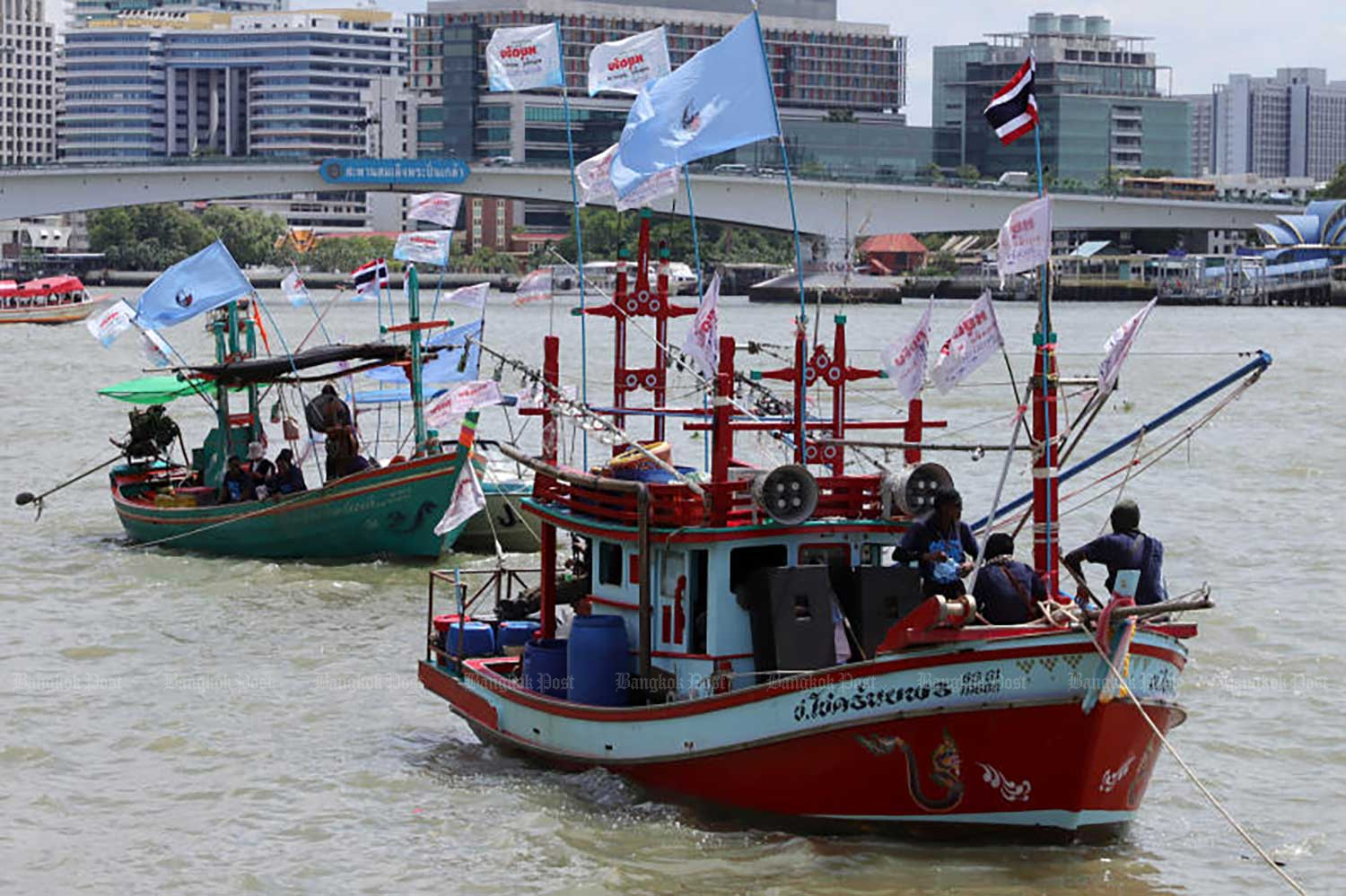Proposed Changes to Fisheries Law Risk New Yellow Card from EU
On February 1, 2025, lawmakers in Thailand are facing criticism for an attempt to amend the 2015 Royal Ordinance on Fisheries, which could jeopardize the country’s standing with the European Union (EU) and lead to another yellow card warning. The proposed amendments, currently under consideration in the Senate, may allow for destructive fishing practices that threaten marine ecosystems.
Criticism from Environmental Advocates
Wichoksak Ronnarongpairee, chairman of the Thai Sea Watch Association, has voiced strong opposition to several aspects of the amendment, particularly the revision of Section 69. The current law prohibits the use of surrounding nets with mesh sizes smaller than 2.5 centimeters during nighttime fishing. The proposed changes would permit such practices beyond 12 nautical miles from shore, raising alarms about the potential overfishing of aquatic life, including larvae.
Implications of the Proposed Amendments
Concerns Over Marine Ecosystems
Wichoksak warned that allowing smaller mesh nets would lead to higher volumes of catch, including young fish that are crucial for maintaining sustainable fish populations. He emphasized that this could prompt the EU to issue a warning regarding Thailand’s fishing practices, as the use of harmful gear undermines efforts to achieve a sustainable marine ecosystem.
Legislative History and Current Status
The amendment was initially proposed by the now-defunct Move Forward Party (MFP) and was shelved in the previous parliament before being resubmitted by Woraphop Viriyaroj, a member of the People’s Party (PP). After passing through the Lower House, it is now under review by a special committee in the Senate, which has approximately 30 days to complete its study before deliberation.
Potential Consequences for Thailand’s Fishing Industry
Risks of EU Sanctions and Economic Impact
Tawat Suraban, chairman of the special committee studying the amendment, noted that some senators are concerned about potential EU sanctions if destructive fishing practices are allowed to proliferate. He highlighted that worker welfare and environmental sustainability are critical issues that need addressing in the proposed changes.
Historical Context of Fisheries Regulations
The original 2015 Royal Ordinance on Fisheries was enacted in response to an EU threat to ban Thai seafood due to illegal fishing practices and human trafficking concerns. The law aimed to combat Illegal, Unreported, and Unregulated (IUU) fishing while promoting worker welfare and sustainable practices. Following its implementation, Thailand saw a reduction in trawlers and significant progress in addressing IUU fishing.
Government Justifications for Amendments
Department of Fisheries’ Perspective
Bancha Sukkaew, director-general of the Department of Fisheries, stated that updating the regulations is necessary to eliminate redundancies and improve efficiency within the fishing sector. He argued that allowing smaller mesh nets would enable Thailand to increase its catch of stolephorus anchovies—an important fish used for animal feed—thus reducing reliance on imports.
Balancing Economic Needs with Environmental Protection
While Bancha acknowledged the need for increased fish catches, he emphasized that additional measures should be implemented to mitigate environmental impacts. For instance, specific fishing seasons would be designated for using small-mesh nets to minimize harm to marine ecosystems.
Opposition from Fisherfolk Associations
Concerns Over Environmental Sustainability
Environmental advocates have criticized the proposed amendments as detrimental to marine resources. Piya Tetyam, president of the Federation of Thai Fisherfolk Association, expressed concern that allowing small mesh nets would lead to significant losses in fish populations and harm local livelihoods.
Call for Sustainable Practices
Local fishermen’s groups argue that protecting marine resources is essential for future generations. They assert that prioritizing short-term economic gains over environmental sustainability could have severe long-term consequences for Thailand’s fishing industry.
Conclusion: A Critical Crossroad for Thailand’s Fisheries Policy
As Thailand navigates this complex issue surrounding its fisheries laws, stakeholders must weigh economic interests against environmental sustainability. The potential for renewed EU sanctions looms large as lawmakers consider amendments that could undermine years of progress in combating IUU fishing practices. Engaging all parties in constructive dialogue will be crucial to achieving a balanced approach that protects both marine ecosystems and local livelihoods.








